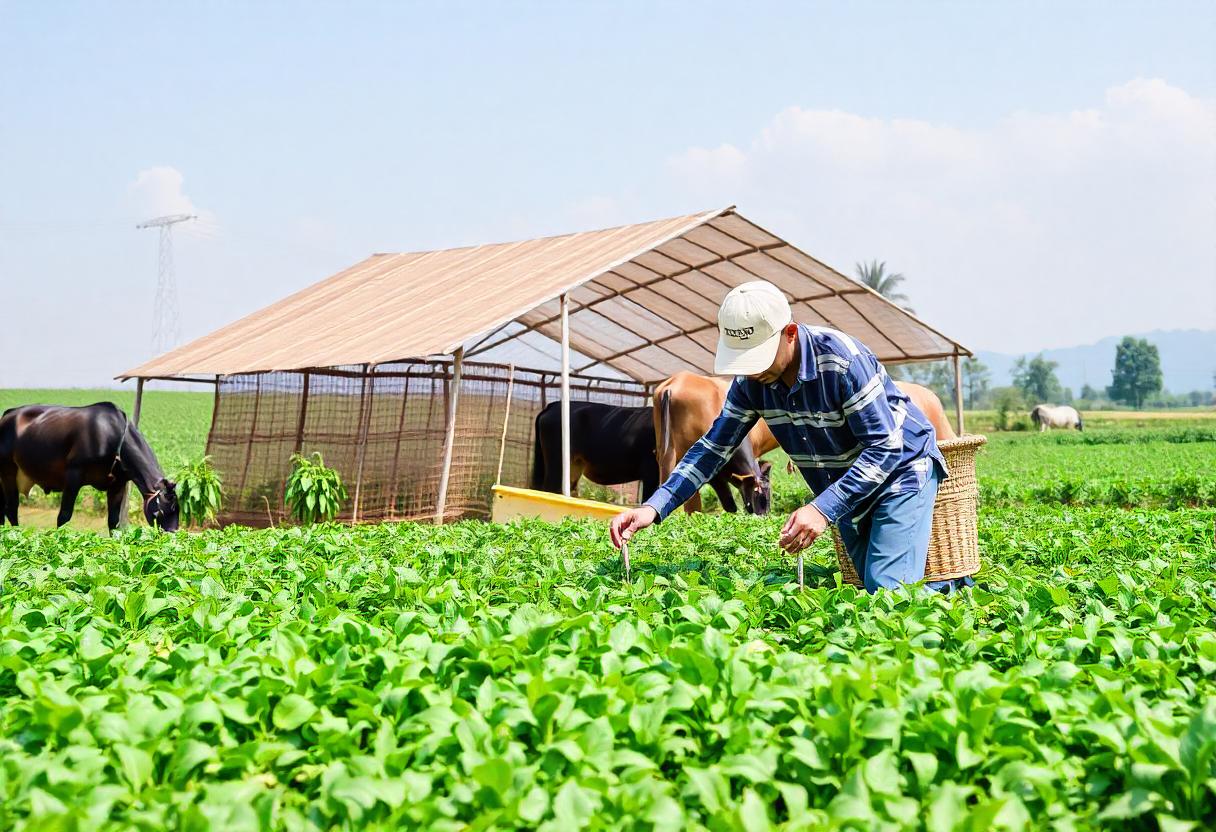
Agriculture business involves the commercial activities related to the production, distribution, and marketing of agricultural products. It encompasses a wide range of activities, from farm management and crop production to food processing and marketing strategies. The agriculture business sector is crucial for food security, economic development, and rural livelihoods.
Key Components of Agriculture Business
Farm Management
Farm management is a core component of agriculture business. It involves planning and overseeing farm operations to ensure efficient and profitable production. Key aspects include crop selection, soil management, irrigation, pest control, and financial management. Effective farm management practices aim to optimize resource use, improve yield, and enhance sustainability.
Crop and Livestock Production
Crop and livestock production are fundamental to agriculture business. This includes the cultivation of crops such as grains, fruits, and vegetables, as well as the raising of livestock such as cattle, poultry, and sheep. Successful production requires knowledge of agricultural techniques, market trends, and risk management strategies to ensure high-quality products and profitability.
Food Processing and Manufacturing
Food processing and manufacturing involve transforming raw agricultural products into finished goods. This sector includes activities such as milling, canning, freezing, and packaging. Processing adds value to agricultural products, extends shelf life, and meets consumer preferences. Innovations in food processing technologies help improve efficiency and product quality.
Distribution and Supply Chain Management
Distribution and supply chain management ensure that agricultural products reach consumers efficiently. This involves logistics, warehousing, transportation, and inventory management. Effective supply chain management minimizes costs, reduces waste, and ensures timely delivery of products to markets.
Marketing and Sales
Marketing and sales are crucial for the success of agriculture business. This includes market research, branding, advertising, and sales strategies. Understanding consumer preferences, market trends, and competitive dynamics helps businesses position their products effectively and capture market share.
Challenges in Agriculture Business
Market Fluctuations
Agriculture businesses often face market fluctuations due to factors such as weather conditions, global trade policies, and changing consumer preferences. These fluctuations can impact prices, demand, and profitability. Businesses must employ strategies to mitigate risk and adapt to market changes.
Environmental Sustainability
Environmental sustainability is a significant challenge in agriculture business. Practices such as overuse of resources, soil degradation, and water pollution can impact the environment. Businesses are increasingly adopting sustainable practices to minimize their environmental footprint and ensure long-term viability.
Technological Adaptation
Technological advancements are rapidly changing the agriculture business landscape. Businesses must adapt to new technologies such as precision agriculture, automation, and digital tools to stay competitive. Investing in technology and training can enhance productivity and operational efficiency.
Labor and Workforce Issues
The agriculture sector often faces labor and workforce challenges, including shortages of skilled workers and the need for seasonal labor. Addressing these issues requires effective recruitment, training programs, and the adoption of labor-saving technologies.
Opportunities in Agriculture Business
Innovation and Technology
Innovation and technology present significant opportunities for agriculture business. Advances in areas such as biotechnology, automation, and data analytics offer ways to improve productivity, reduce costs, and enhance product quality. Embracing technological innovations can drive growth and competitiveness.
Sustainable Practices
Sustainable agriculture practices offer opportunities for businesses to differentiate themselves in the market. By adopting eco-friendly methods, businesses can appeal to environmentally-conscious consumers and benefit from incentives such as subsidies and certifications.
Global Markets
Expanding into global markets provides new opportunities for agriculture businesses. International trade allows businesses to access new customer bases, diversify revenue streams, and leverage global demand for agricultural products.
Value-Added Products
Developing value-added products can enhance profitability and marketability. This includes creating processed foods, specialty items, and branded products that offer unique features or benefits. Value addition helps capture higher market prices and meet diverse consumer needs.
Future Trends in Agriculture Business
Digital Transformation
Digital transformation is reshaping the agriculture business sector. Technologies such as artificial intelligence, machine learning, and blockchain are improving decision-making, traceability, and operational efficiency.
Climate Resilience
Building climate resilience is becoming increasingly important for agriculture businesses. Adapting to climate change through practices such as climate-smart agriculture and resource-efficient techniques helps ensure long-term sustainability.
Urban Agriculture
Urban agriculture is gaining traction as cities seek to enhance local food security and reduce the environmental impact of food transportation. Opportunities in urban farming, vertical gardens, and rooftop cultivation offer innovative solutions for urban food production.
Agriculture business is a dynamic field that combines traditional practices with modern innovations. By addressing challenges and leveraging opportunities, businesses can thrive in a competitive and evolving landscape.